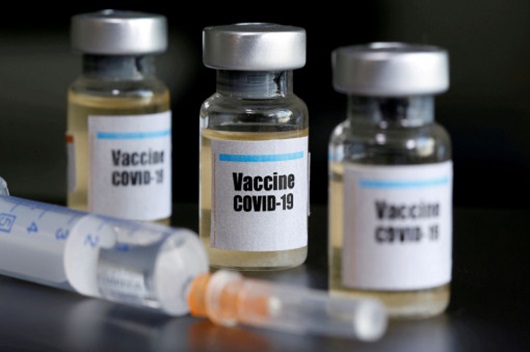Committee points out flaws in a study on post-vaccination mortality related to COVID-19
14/01/2025
Fiocruz News Agency
The Technical-Scientific Monitoring Committee of Initiatives Related to COVID-19 Vaccines, composed of an independent group of experts from Fiocruz and outside the institution, issued a critical stance on Monday (January 13) regarding the article Evaluation of post-COVID mortality in cases classified as severe acute respiratory syndrome in Brazil: a longitudinal study for medium and long term, published in December 2024 by the scientific journal Frontiers in Medicine. The position statement will be sent to the journal's editor, requesting a retraction of the article.
The Committee will request the retraction of the article
The study claims that "the protective effect of COVID-19 vaccination was observed up to one year after the first symptoms. After one year, the effect was reversed, showing an increased risk of death for the vaccinated." According to the Committee’s experts, the article presents conclusions based on flawed methodologies and could contribute to greater mistrust of vaccines.
"The hypothesis put forward by the paper is at odds with the overwhelming scientific knowledge published about vaccines and vaccination not only against COVID-19 but against many other vaccine-preventable diseases," evaluated the Committee. The group also pointed out other significant limitations, such as the uncontrolled observational nature of the study and the inappropriate use of the Severe Acute Respiratory Infection (SARI) notification database, classified as COVID-19, from the Epidemiological Surveillance Information System (Sivep, in the Portuguese acronym). According to the experts, although this database is robust, it is not structured to address the hypotheses presented regarding long-term mortality differences between vaccinated and unvaccinated individuals. Furthermore, the study does not take into account factors such as age, comorbidities, and socioeconomic conditions, which are considered important for clinical case outcomes.
The Committee also criticized the lack of reference to studies from other research groups, including Brazilian analyses that used the same database. The experts reminded that a vast body of scientific evidence demonstrates the safety and efficacy of vaccines, supported by organizations such as the International Vaccine Access Center (IVAC) at the Johns Hopkins Bloomberg School of Public Health.
Among its recommendations, the Committee emphasized the importance of maintaining methodological rigour in public health research, especially on sensitive topics such as vaccines. The experts also highlighted the need to use different databases and consider established evidence on the efficacy and safety of vaccines. They warned about the risks of hasty conclusions. In an effort to prevent the research from undermining trust in vaccines, the Committee called for greater transparency from both the authors and the scientific journals.
“It is crucial to maintain scientific rigour while avoiding ideological polarization in vaccine research. Papers submitted for scientific publication addressing causality related to health conditions, which are multifactorial in nature, should use multiple appropriate and robust databases to test hypotheses that are inherently multicriteria, and clearly state the paper's methodological limitations and the limitations of the inferences put forward,” stated the Committee in a message that will be sent to the editors of Frontiers in Medicine, accompanied by a request for retraction.
“The scientific community has a responsibility to ensure that published research meets rigorous methodological standards, particularly regarding public health interventions. While the Brazilian database is a valuable resource, its appropriate use and interpretation are crucial for maintaining public trust in scientific research and vaccine programs,” concluded the Committee.
Last week, Fiocruz issued an official statement reinforcing the safety of the vaccine and the importance of vaccination as a strategy in combating the pandemic. Other research groups from Fiocruz have also raised significant concerns about the article and have requested a position from the editors of Frontiers in Medicine. The Ministry of Health published a statement challenging the validity of the study.
Technical-Scientific Monitoring Committee of Initiatives Related to COVID-19 Vaccines
The Technical-Scientific Monitoring Committee of Initiatives Related to COVID-19 Vaccines was established by the Presidency of Fiocruz in July 2020. Its main responsibilities are to evaluate technical and scientific documents on the technological development of the vaccine, clinical trials, and the process of technological incorporation; assess the acquisition or absorption of third-party technologies or the development of collaborations or partnerships for the development of technologies related to the fight against COVID-19; and produce technical and scientific opinions to support the Presidency of Fiocruz on these topics.
Currently, the committee is chaired by the president of Fiocruz, Mario Moreira, and is composed of members from the Foundation, the Federal University of Rio de Janeiro (UFRJ), the University of São Paulo (USP), and the Federal University of Goiás (UFG).



